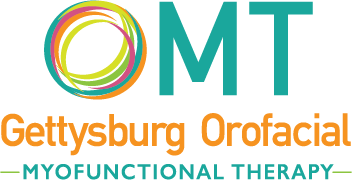An Apple a Day: How Nutrition Affects Your Smile
There’s a saying, “An apple a day keeps the doctor away.” While Gettysburg Dental Associates 100% recommends regular dental visits, apples can be a nutritious and beneficial choice for both your oral and overall health. What you eat and drink can impact your oral health more than you realize. Read on to learn how nutrition affects your oral health.
Sugar & Tooth Decay
Your mouth is the first point of contact your body has with the foods and drinks you choose. One of the biggest factors affecting your oral health and overall health is the sugar content in your foods and drinks.
Sugar is the leading cause of tooth decay, and it comes in many forms. On food labels, ingredients ending in “ose,” such as sucrose and fructose, are sugars. The higher it appears within a list of ingredients, the higher the sugar content in that product. Many processed foods (those in boxes and packaging, such as cereal and snack foods) contain added sugars.
How does sugar contribute to tooth decay? Sugar in foods and drinks reacts to the bacteria found in plaque coating our teeth. This sets a chain of events into motion: Acids are formed, damaging tooth enamel. When this process repeatedly happens, a hole or cavity forms because the defenses of our enamel have broken down.
Tooth-Friendly Foods & Beverages
Which foods and drinks are best for dental health? First, the best beverage for healthy teeth is water, especially if it’s fluoridated. Milk is also a good option. As far as tooth-friendly foods, these healthy choices are high in calcium and phosphorus, two minerals that protect and rebuild tooth enamel:
· Cheese
· Plain yogurt
· Leafy greens
· Almonds
· Meat, poultry, and fish
· Tofu
· Eggs
Whole foods such as fruits and vegetables are also beneficial because they contain water and fiber, which balance their sugar content and stimulate saliva production to keep teeth clean. Many fruits and veggies also contain vitamin C (essential for healthy gums) and vitamin A, which your body needs to build tooth enamel.
Some of the best fruits and veggies for oral health, in addition to the leafy greens mentioned above, include:
· Carrots
· Celery
· Apples
Foods & Drinks to Avoid
Now that we’ve addressed healthy choices, let’s discuss the foods and beverages that can harm oral health.
Foods with empty calories (no nutritional value) often have high sugar content as well:
· Candy, especially varieties that are hard or sticky, such as lollipops, taffies, and caramels
· Cookies
· Cakes and muffins
· Snack foods such as chips
Sugary drinks are harmful because repeatedly sipping them can be thought of as a constant sugar bath over tooth enamel. These include:
· Soda
· Lemonade
· Juice
· Sweetened coffee or tea (iced or hot)
Even certain nutritious foods can pose a risk to our oral health. Foods like citrus fruits and tomatoes are highly acidic, which can affect tooth enamel. As a result, doctors suggest consuming these foods as part of meals and not as standalone snacks.
Tips for Maintaining a Healthy Smile
A regular oral health routine is the best defense against harmful sugars and acids. The American Dental Association recommends brushing twice per day. Brushing before bedtime is essential because our natural tooth cleaner, saliva, slows as we sleep. Mouthwashes can also be effective.
Limiting your snacking is helpful if you want to avoid sugary foods. However, if you need to snack between meals, you can choose healthy options such as apples, yogurt, and nuts. These foods can satisfy your sweet tooth and crunchy cravings without compromising your health. You can find more information on the American Dental Association's website, which provides nutritional guidelines and information on how sugar substitutes affect your teeth.
Last but not least, regular dental check-ups are crucial for maintaining good oral health. Contact us now to schedule your appointment!






